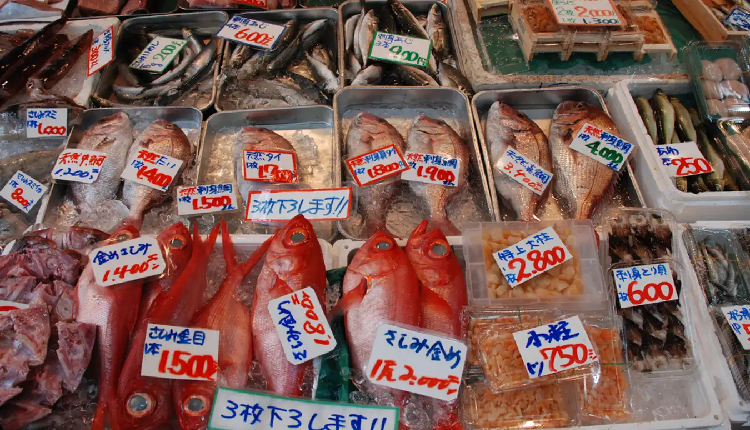Japan is increasing its efforts to promote seafood exports to new markets in Asia, the US, and Europe to make up for lost sales due to a Chinese import ban.
China stopped buying Japanese products over concerns of radioactive contamination following the release of treated water from the Fukushima nuclear power plant into the Pacific Ocean by Tokyo Electric Power in August.
The move comes as the country grapples with a significant decline in agricultural, forestry, and fishery exports, primarily due to a 43.8 per cent plunge in shipments to China. Scallops were the hardest-hit, dropping 37 per cent year-on-year.
China was once the largest market for Japanese seafood exports, but imposed a ban last August following the release of treated water from the Fukushima nuclear power plant.
Norihiko Ishiguro, chairman of the Japan External Trade Organisation (JETRO), acknowledges the challenges but highlights increased exports to the US, Canada, Thailand, and Vietnam as positive signs.
The government-backed trade body aims to redirect 20-30 per cent of scallop exports previously destined for China to alternative markets.
Ishiguro is confident that Japan can fully recover from the loss caused by the Chinese ban, citing strong growth potential in seafood exports.
With an extra 5-billion-yen budget from the government, JETRO has organised 170 events in the last year to showcase scallops, yellowtail, and other fish in over 70 cities in Japan and internationally, including Davos, Switzerland, and San Francisco.
Ishiguro and another JETRO official reported that the organisation has brought in renowned chefs, influencers, and buyers from overseas to visit fish markets and fisheries in Japan.
Additionally, campaigns in Thailand have focused on promoting Japanese seafood in non-Japanese restaurants such as Thai, Italian, and Chinese establishments.
Attribution: Reuters
Subediting: M. S. Salama


